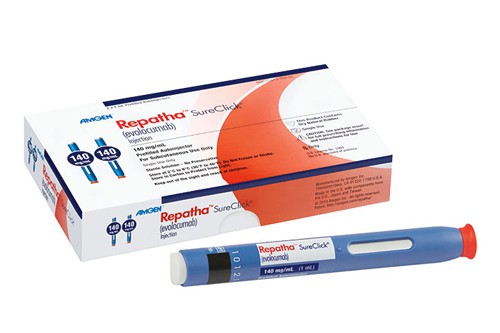
Amgen believes it has the cardiovascular outcomes data it needs to inject some renewed momentum into its laggard cholesterol-lowering antibody Repatha, but reaction to the results has been muted.
Sales of the PCSK9 inhibitor have been slow to grow, mainly because health insurers and pharmacy benefit managers in the US have been reluctant to underwrite prescriptions on the strength of its ability to cut LDL cholesterol alone.
Now, the long-anticipated results of the large-scale FOURIER trial reveal that Repatha (evolocumab) not only cuts LDL-c to “unprecedented low levels”, but it also reduces major adverse cardiovascular events (MACE) by 20% with no evidence of new safety issues.
Despite the improvement, shares in the company actually declined 6% after the news was announced, and analysts were underwhelmed by the figures with Leerink’s Joseph Schwartz calling the data “less than stellar.” Investors are now more cautious on prospects for PCSK9 inhibitors as a result, he suggested in a research note.
In FOURIER, 27,500 patients were enrolled into the trial and randomly allocated to treatment with either an optimised regimen of statin drugs or statins plus Repatha. After a follow-up period of around two years, it showed that the risk of heart attack, stroke and coronary revascularisation was cut by 27%, 21% and 22%, respectively.
Repatha was also able to reduce an extended array of MACE endpoints – including hospitalisation for unstable angina, coronary revascularisation, heart attack, stroke or cardiovascular death – by 15%.
Amgen reported sales of $141m for Repatha last year, its first full year on the market after picking up FDA approval in August 2015, which is considered a slow start for a product once tipped to be a multibillion dollar brand.
It is one of only two PCSK9 inhibitors on the market, along with Sanofi and Regeneron’s Praluent (alirocumab) which is also experiencing slow-take up and made €104m ($112m) in sales in 2016.
The two drugs both have a list price of around $14,000 per year before rebates and discounts, while the main cholesterol-lowering class – statin drugs – are available generically and typically cost less than $1,000 per year.
The steep price differential means that around two-thirds of patients are unable to receive insurance coverage for Repatha, even after filing multiple appeals, according to Amgen. Sanofi and Regeneron have reported a similar pattern with Praluent.
Sanofi and Regeneron are waiting for the results of their own cardiovascular outcomes trial for Praluent – called ODYSSEY OUTCOMES, which are due later this year.




